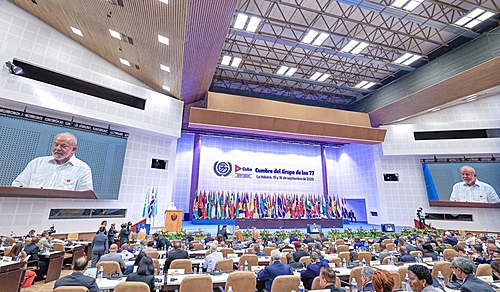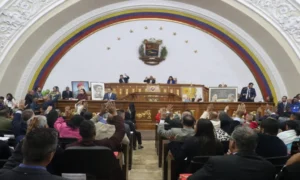
In its final declaration, the G77+China Summit highlighted the importance of technology for development, the impacts of climate change and advocated a reform of the international economic system. The event ended this Saturday (16) in Havana, the capital of Cuba, and was attended by the Brazilian president, Luiz Inácio Lula da Silva (PT), and other presidents from Latin America, Africa and Asia.
“We highlight the urgent need for a comprehensive reform of the international financial architecture and a more inclusive and coordinated approach to global financial governance, with greater emphasis on cooperation between countries, including through increasing the representation of developing countries in global decision-making bodies and policy development that will contribute to increasing the capabilities of developing countries to access and develop science, technology and innovation”, says the Havana Declaration.
In the summit’s final declaration, there is also a criticism against “digital monopolies” and “other unfair practices that hinder the technological development of developing countries”.
Furthermore, the text attacks “sanctions” and “coercive economic actions” against developing countries. “We emphasize that such actions not only undermine the principles enshrined in the United Nations Charter and international law, but also seriously impede the advancement of science, technology and innovation and the full realization of economic and social development, particularly in developing countries. “
The president of Cuba, Miguel Díaz-Canel, highlighted at the opening of the summit, on Friday (16), that one of the objectives of the event was to seek common positions so that countries from the Global South could take their demands to other international forums. On the same day, UN Secretary-General António Guterres highlighted that “global systems and structures have failed” countries in the Global South.
Editing: Rodrigo Gomes
Source: www.brasildefato.com.br

